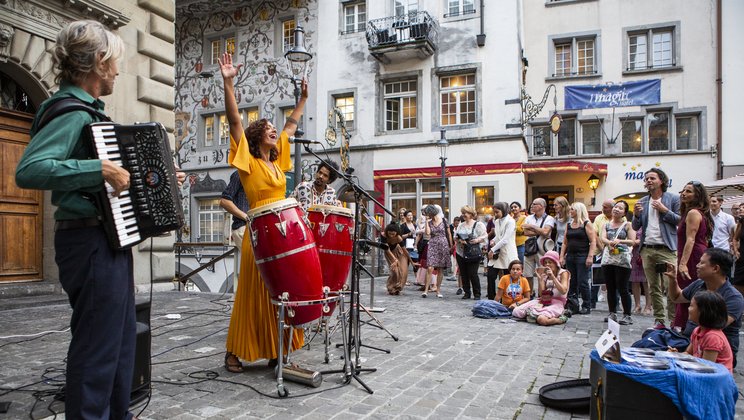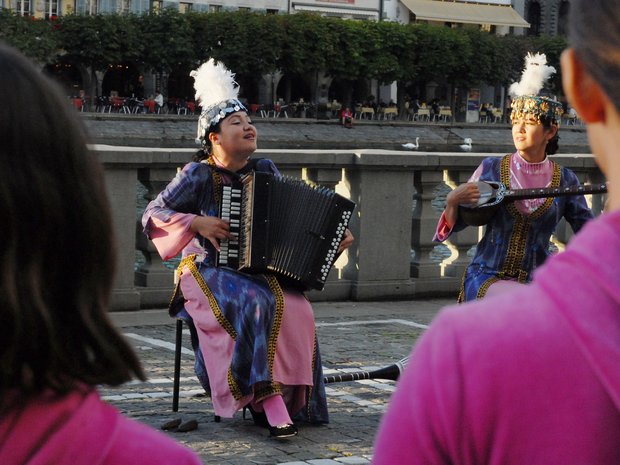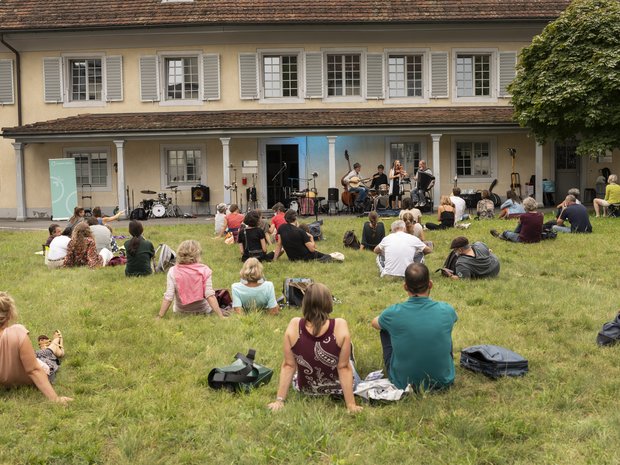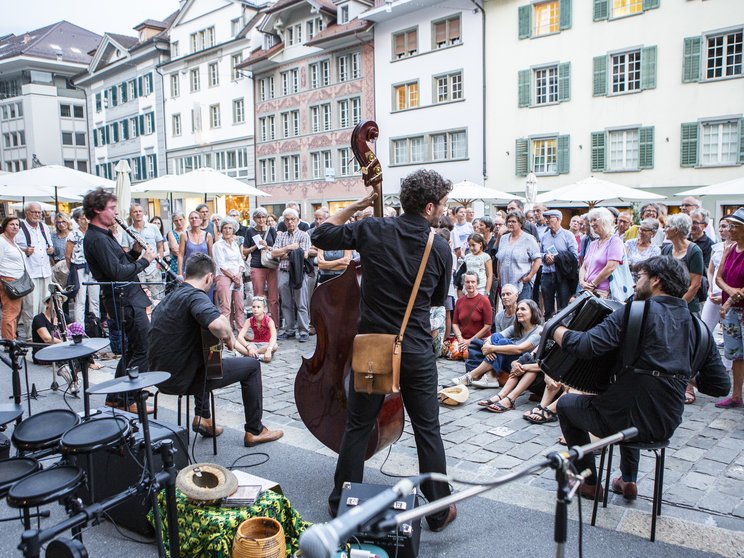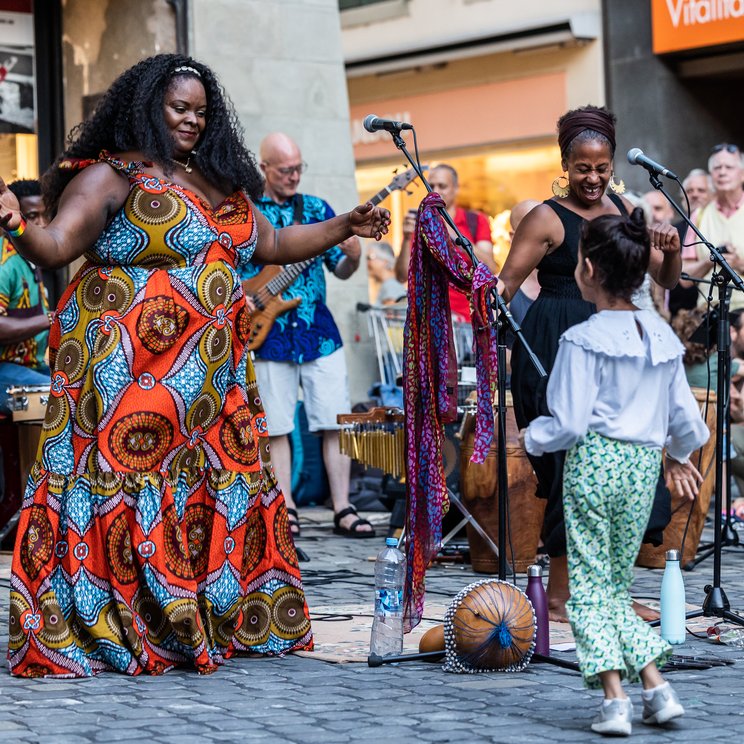All you need to know about the anniversary edition of our popular festival-within-the-festival
Learn moreLucerne Festival doesn’t just take place in the KKL Luzern – it also spills out “In den Strassen”: into the streets. For the 20th time, our small but distinguished week of world music will make the entire city resound – with open-air performances by international groups offering a many-voiced panorama of music and inviting audiences to wander through Lucerne’s Old Town. It all kicks off on Tuesday, 26 August. In advance, we spoke with Hugo Faas, who has planned and overseen this street festival for Lucerne Festival from the beginning.
Mr. Faas, you’ve been involved with “In the Streets” from the very beginning, helping launch the event in 2006. How did the idea come about – especially for a “festival within the Festival” featuring music that isn’t necessarily part of Lucerne Festival’s core identity?
At the time, the Festival was facing some criticism that it appealed only to well-to-do audiences, while ordinary people couldn’t afford the ticket prices. In response, Michael Haefliger – whose daughter was an avid fan of world music – asked me to create an event modeled after the buskers’ festivals in Bern and Neuchâtel. The concept was simple: we invite the groups and cover their expenses – travel, lodging, and meals – but the musicians earn their fees directly from the audience through passing the hat (and nowadays also through TWINT donations).
What makes “In the Streets” distinctive – what sets it apart?
Together with Bern and Neuchâtel, Lucerne was one of the first street-music festivals in Switzerland. But while the events in Bern and Neuchâtel have gradually evolved into city fairs with food stalls and all kinds of extras, we’ve stayed focused entirely on the music. Our loyal, open-minded audience comes for exactly that: to discover new bands and unfamiliar sounds. And we really do present groups from every corner of the world – this summer, for instance, we’ll feature a duo from Malawi for the first time. The spectrum runs from the most intimate performances to moments that verge on the ecstatic. I’ve always aimed for a stimulating mix that sparks curiosity but also includes music you can dance to.
Looking back over the past 19 editions: what have been your personal highlights?
I’ve been fortunate to have a good instinct when selecting the groups, so I can’t really single out one particular year as standing above the rest – and honestly, I find that much more satisfying than pointing to one special highlight. This summer, too, I’m curious about every single artist. Perhaps I’m especially looking forward to Claudia Masika’s new vocal project, since it will have its premiere here in Lucerne.
Over such a long period, there must also have been challenges to deal with?
There have always been minor difficulties – for example, obtaining permits from the city in the face of complaints from some residents. But we’ve always tried to strike a balance and kept everyone informed early on. Most of the real trouble usually came from “free-rider groups” that weren’t actually part of our festival – because they didn’t follow the rules and, for instance, played far longer than allowed. Local shops and businesses may have been a bit skeptical at the beginning, but by now they’re happy to be involved.
Over the years, have there been changes in how you select and present the groups? It seems to me that in the past the world music scene emphasized the “exotic” appeal of individual cultures, whereas today everything feels much more blended.
That’s true. And it’s also because the internet is everywhere now, which means people can encounter all kinds of different music no matter where they are – even in Malawi. In the early years of the festival, if there was an exchange between groups it was seen as a small sensation. Today it’s taken for granted. But in any case, highlighting the “exotic” was never my aim. What mattered to me was always the richness of the music. That’s why I prefer not to say “world music,” but rather “music from the diverse cultures of the world.”
And the audience – has it changed over the years?
It has gotten older; for a number of years fewer young people were joining. But that’s starting to shift in the world music scene: there are more young groups again, and younger listeners can identify with them.
Some artists have been regular guests, sometimes in different ensembles. Have close relationships developed over the years?
Of course. Claudia Masika and the Neapolitan women’s group Assurd are good examples. But we’ve always made sure that when we invite them back, they come in a different lineup or with a new program. Our festival has an excellent reputation. Musicians can perform here for a full week, they’re well accommodated, and the conditions are good. That’s why everyone is eager to return – and that’s the greatest compliment!
Since the summer of 2022, selected groups from each year’s festival have also been visiting schools in Lucerne to perform there. How has this been received?
Very well. Lucerne Festival has made it a mission to inspire the younger generation with music. That’s why it brings young classical musicians from the Festival program into the schools – but also world music. World music is naturally very communicative; it leaves space for improvisation and spontaneity, and the musicians genuinely enjoy performing for young people. In many parts of the world, it’s simply taken for granted that children and teenagers are part of musical life.
Interview by Malte Lohmann
“In the Streets” takes place this summer from 26 to 31 August, every evening starting at 6:00 pm, and on weekends during the day as well. An opening concert and a closing concert in front of the KKL Luzern frame the more than 80 open-air performances throughout Lucerne’s Old Town.
